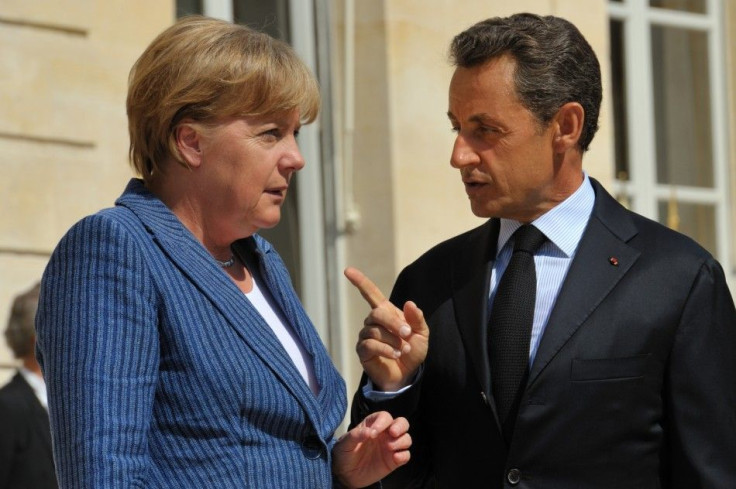Germany, France to Pressure Papandreou to Drop Referendum, Accept Rescue Deal

German Chancellor Angela Merkel has warned that Greece must accept the rescue deal hammered out in last week’s Eurozone summit and that there is no room for renegotiations.
Merkel and French President Nicolas Sarkozy are expected to hold emergency talks with George Papandreou on Thursday ahead of the G20 summit in Cannes, France over the Greek Prime Minister’s shocking decision to put the rescue deal to a popular vote via referendum (where it is likely to be defeated by an unhappy Greek public).
We agreed [to] a program with Greece last week. And from the EU side, at least for Germany, we want to implement this program,” Merkel said prior talks with Papandreou.
For this, we need clarity and that's what these talks tonight are about.
Similarly, the French Prime Minister Francois Fillon echoed her concerns.
“In the wake of the announcement made… by the Greek prime minister, France is determined, with its partners, to obtain the full implementation of this deal, he said.
Jean-Claude Juncker, Eurozone chairman, has warned that if Greek voters reject the bailout via referendum, the country would likely plunge into bankruptcy.
However, the Greek cabinet has given its backing to the referendum, which reportedly could take place in December.
European leaders were taken aback by the referendum proposal and clearly want Papandreou to reconsider.
BBC’s Europe editor Gavin Hewitt commented: “Many were cursing… Papandreou yesterday - certainly European officials and certainly the leaders of France and Germany. They complained they had not been forewarned or consulted about his proposal to put the rescue deal to the people. They believed, in a rash moment, the Greek prime minister had jeopardized the Eurozone bailout plan so painfully constructed in Brussels last week.”
Papandreou has told reporters that “We will not implement any program by force, but only with the consent of the Greek people. This is our democratic tradition and we demand that it is also respected abroad.
Nonetheless, Papandreou may be the most unpopular man in Europe right now.
Not only are the most powerful leaders on the continent (Sarkozy, Merkel, and perhaps British Prime Minister David Cameron) likely to pressure him into accepting the Eurozone rescue package, but his government is also facing an important confidence vote on Friday.
Papandreou’s ruling Socialist Pasok party has a slight majority in parliament, as some members have already quit or defected to protest the government’s draconian austerity plans.
Some opposition lawmakers have demanded that Papandreou either quit or call early elections.
© Copyright IBTimes 2024. All rights reserved.





















